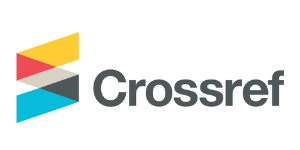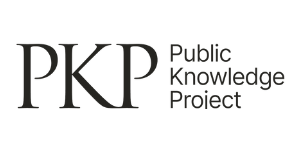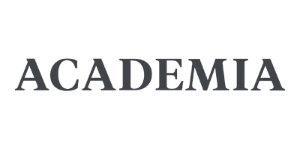Shifting Communication through Virtual Influencers Driven Metaverse Revolution
DOI:
https://doi.org/10.37535/105004120257Keywords:
Virtual Communication, Digital Influencer, Public Relations, Metaverse Revolution, Social MediaAbstract
The metaverse revolution and the shifting to artificial intelligence (AI) are transforming human daily activities with the growth of chatbots and virtual agents changing communication and public relations strategies. Therefore, this paper aims to explore and question virtual influencers in Africa regarding communication strategies in organizations and human daily activities according to the metaverse revolution. This explorative qualitative descriptive research adopted a synthesis review of scientific publications and online investigation on two virtual influencers pages on Instagram in Africa to collect the data according to the influencers marketing paradigm on social media. First, the findings underlined the social presence, parasocial connectedness and perceived credibility of these virtual AI influencers in the innovative usages to support marketing and communication. Then, the results underlined the prospective application of AI virtual influencers and ethical issues in communication and public relations strategies. As a recommendation, the integration of AI Virtual influencers and AI agents in human activities requires to update the skills of managers and users by considering a human-centered approach according to the industry 5.0 paradigm.
References
Akbari, D. A., Jastacia, B., Setiawan, E., & Ningsih, D. W. (2022). The marketing power of TikTok: A content analysis in higher education. Binus Business Review, 13(2), 159-170, https://doi.org/10.21512/bbr.v13i2.8014
Allam Z, Sharifi A, Bibri SE, Jones DS, Krogstie J. The Metaverse as a Virtual Form of Smart Cities: Opportunities and Challenges for Environmental, Economic, and Social Sustainability in Urban Futures. Smart Cities. 2022; 5(3):771-801. https://doi.org/10.3390/smartcities5030040a
Ameen, N., Cheah, J. H., Ali, F., El-Manstrly, D., & Kulyciute, R. (2024). Risk, trust, and the roles of human versus virtual influencers. Journal of Travel Research, 63(6), 1370-1394.
Arjang, A., Utami, E. Y., & Redjeki, F. (2024). Utilization of Social Media and Online Platforms in Improving Customer Engagement of Fashion SMEs in Bali. West Science Business and Management, 2(01), 29–36. https://doi.org/10.58812/wsbm.v2i01.698
Azaroual, F (May 16, 2024) Artificial Intelligence in Africa: Challenges and Opportunities, Policy Center, https://www.policycenter.ma/publications/artificial-intelligence-africa-challenges-and-opportunities
Bibri, S. E. (2022). The social shaping of the metaverse as an alternative to the imaginaries of data-driven smart Cities: A study in science, technology, and society. Smart Cities, 5(3), 832-874.
Bibri, S. E., & Allam, Z. (2022). The Metaverse as a virtual form of data-driven smart cities: The ethics of the hyper-connectivity, datafication, algorithmization, and platformization of urban society. Computational Urban Science, 2(1), 22.
Bjola, C. (2022) AI for development: implications for theory and practice, Oxford Development Studies, 50:1, 78-90, DOI: 10.1080/13600818.2021.1960960 To link to this article: https://doi.org/10.1080/13600818.2021.1960960
Böhndel, M., Jastorff, M., & Rudeloff, C. (2023). AI-driven influencer marketing: Comparing the effects of virtual and human influencers on consumer perceptions. Journal of AI, Robotics & Workplace Automation, 2(2), 165-174. https:// nbn-resolving.org/urn:nbn:de:0168-ssoar-90190-4
Chamblee, W. (2022). The Effects of Social Media on Public Relations (Doctoral dissertation).
Chen Lou, Siu Ting Josie Kiew, Tao Chen, Tze Yen Michelle Lee, Jia En Celine Ong & ZhaoXi Phua (2022): Authentically Fake? How Consumers Respond to the Influence of Virtual Influencers, Journal of Advertising, DOI: 10.1080/00913367.2022.2149641
Choudhry, A., Han, J., Xu, X., & Huang, Y. (2022). " I Felt a Little Crazy Following a'Doll'" Investigating Real Influence of Virtual Influencers on Their Followers. Proceedings of the ACM on human-computer interaction, 6(GROUP), 1-28.
Conti, M., Gathani, J., & Tricomi, P. P. (2022). Virtual influencers in online social media. IEEE Communications Magazine, 60(8), 86-91.
De Brito Silva, M. J., de Oliveira Ramos Delfino, L., Alves Cerqueira, K., & de Oliveira Campos, P. (2022). Avatar marketing: a study on the engagement and authenticity of virtual influencers on Instagram. Social Network Analysis and Mining, 12(1), 130.
Gorichanaz, T. (2023). Being at home in the metaverse? Prospectus for a social imaginary. AI and Ethics, 3(2), 647-658.
Gougou, S. A. M., Paschal, M. J., & Shamaieva, I. (2023). Rethinking African City Sustainability through Digital Socio-Technology. Global Journal of Human-Social Science, 23(C1), 17-26, https://socialscienceresearch.org/index.php/GJHSS/article/view/103632
Gougou, S. A-M & Paschal, M., J. (2024). Digital Communication and Small and Medium Enterprises Sustainable Development in Africa. ISRG Journal of Arts Humanities & Social Sciences (ISRGJAHSS), II(II), 66 75. https://doi.org/10.5281/zenodo.10802883
Gougou, S. A-M. & Paschal, M. J.(2022). Digital Sociability and the Construction of Social Links on Social Digital Network in Ivory Coast: A Case Study of Young Abidjanese. Direct Research Journal of Social Science and Educational Studies. Vol. 10(7), Pp. 118-127. https://directresearchpublisher.org/drjsses/files/2022/08/PUBLICATIONDRJSSES91144695.pdf
Hassan, Y. (2023). Governing algorithms from the South: a case study of AI development in Africa. AI & SOCIETY, 38(4), 1429-1442.
Hofeditz, L., Nissen, A., Schütte, R., & Mirbabaie, M. (2022). Trust me, I’m an influencer!-A comparison of perceived trust in human and virtual influencers, ECIS 2022 Research-in-Progress Papers. 27. https://aisel.aisnet.org/ecis2022_rip/27
Huynh-The, T., Pham, Q.-V., Pham, X.-Q., Nguyen, T. T., Han, Z., & Kim, D.-S. (2023). Artificial intelligence for the metaverse: A survey. Engineering Applications of Artificial Intelligence, 117, 105581. https://doi.org/10.1016/j.engappai.2022.10558
Iffah, A. N., Puspita, V., & Hidayatulloh, R. I. (2024). Integrating Characteristics of Indonesian Female into Virtual Influencers for AI-Based Marketing Strategies. International Journal of Instructional Cases.
Jhawar, A., Kumar, P., & Varshney, S. (2023). The emergence of virtual influencers: a shift in the influencer marketing paradigm. Young Consumers, 24(4), 468-484.
Kádeková, Z., & Holienčinová, M. (2018). Influencer Marketing as a Modern Phenomenon Creating a New Frontier of Virtual Opportunities. Communication Today, 9(2).
Kalla, L. (2022). Virtual influencers: A challenge to trust and authenticity. MA Applied Ethics for Professionals, 1-87.
Kamal, M., & Himel, A. S. (2023). Redefining modern marketing: an analysis of AI and NLP's influence on consumer engagement, strategy, and beyond. Eigenpub Review of Science and Technology, 7(1), 203-223.
Khuat, H. (2023). From pixels to fame: an empirical study of Virtual Influencers and gen Z customer engagement.
Kim, E., Kim, D., E, Z., & Shoenberger, H. (2023). The next hype in social media advertising: Examining virtual influencers’ brand endorsement effectiveness. Frontiers in Psychology, 14, 1089051.
Koles, B., Audrezet, A., Moulard, J. G., Ameen, N., & McKenna, B. (2024). The authentic virtual influencer: Authenticity manifestations in the metaverse. Journal of Business Research, 170, 114325. https://doi.org/10.1016/j.jbusres.2023.114325
Lee, H., Shin, M., Yang, Y., & Makana Chock T.(04 Jul 2024): Virtual Influencers vs. Human Influencers in the Context of Influencer Marketing: The Moderating Role of Machine Heuristic on Perceived Authenticity of Influencers, International Journal of Human–Computer Interaction, https://doi.org/10.1080/10447318.2024.2374100
Lou, C., Kiew, S. T. J., Chen, T., Lee, T. Y. M., Ong, J. E. C., & Phua, Z. (2023). Authentically fake? How consumers respond to the influence of virtual influencers. Journal of Advertising, 52(4), 540-557.
Luo, L., & Kim, W. (2024). How virtual influencers’ identities are shaped on Chinese social media: A case study of ling. Global Media and China, 9(3), 325-343.
Miyake, E. (2024). Virtual Influencers : Identité et numérisation à l'ère des réalités multiples. Taylor & Francis.
Mo, Zichuan, and Meihan Zhou. 2024. "Don’t Like Them but Take What They Said: The Effectiveness of Virtual Influencers in Public Service Announcements" Journal of Theoretical and Applied Electronic Commerce Research 19, no. 3: 2269-2288. https://doi.org/10.3390/jtaer19030110
Nyagadza, R. Pashapa, A. Chare, G. Mazuruse & P. K. Hove (2022) Digital technologies, Fourth Industrial Revolution (4IR) & Global Value Chains (GVCs) nexus with emerging economies’ future industrial innovation dynamics, Cogent Economics & Finance, 10:1, 2014654, DOI: 10.1080/23322039.2021.2014654 To link to this article: https://doi.org/10.1080/23322039.2021.2014654
Puspita Yuri, H. (2022). Penerimaan Audiens atas Konten Pariwisata dari Virtual Youtuber Andi Adinata. CoverAge: Journal of Strategic Communication, 13(1), 38–49. https://doi.org/10.35814/coverage.v13i1.3336
Qadir, A. M. A., & Fatah, A. O. (2023). Platformization and the metaverse: Opportunities and challenges for urban sustainability and economic development. EAI Endorsed Transactions on Energy Web, 10(1).http://dx.doi.org/10.4108/ew.3842
Rossi, C., & Rivetti, F. (2023, May). Virtual influencer marketing: Is it effective in engaging younger generations. In Proceedings of the 10th European Conference on Social Media, ECSM (Vol. 10).
Roy, D., & Chakraborty, J. (2023). “Forever young, beautiful, and scandal-free”: Exploring the Ethical Frames and Crafted Authenticity in the Animated Images of Female Virtual Influencers. Global Media Journal. Indian Edition, 15(1), 1-23.
Sands, S., Ferraro, C., Demsar, V., & Chandler, G. (2022). False idols: Unpacking the opportunities and challenges of falsity in the context of virtual influencers. Business Horizons, 65(6), 777–788., https://doi.org/10.1016/j.bushor.2022.08.002
Shin, Y., & Lee, S. (2023). Issues of virtual fashion influencers’ reproduced bodies: a qualitative analysis based on body discourse. Fashion and Textiles, 10(1), 30.
Sudaryanto, S., Courvisanos, J., Rosediana Dewi, I., Rusdiyanto, R., & Rendis Yuaris, J. (2022). Determinants of purchase intention during COVID-19: A case study of skincare products in East Java. Innovative Marketing, 18(1), 181-194, https://doi.org/10.21511/im.18(1).2022 .
Vita, N.I., et al. (2023). AI public relations: the early rise of Kizuna AI. Jurnal Studi Komunikasi, 7(2). doi: 10.25139/jsk.v7i2.6689
Wibawa, R. C., Pratiwi, C. P., Wahyono, E., Hidayat, D., & Adiasari, W. (2022). Virtual influencers: Is the persona trustworthy?. Jurnal Manajemen Informatika (JAMIKA), 12(1), 51-62.
Wolff, W. E. M. (2022). A trend or is the future of influencer marketing virtual? The effect of virtual influencers and sponsorship disclosure on purchase intention, brand trust, and consumer engagement (Master's thesis, University of Twente).
Zhanbayev, R. A., Irfan, M., Shutaleva, A. V., Maksimov, D. G., Abdykadyrkyzy, R., & Filiz, Ş. (2023). Demoethical model of sustainable development of society: A roadmap towards digital transformation. Sustainability, 15(16), 12478.
















